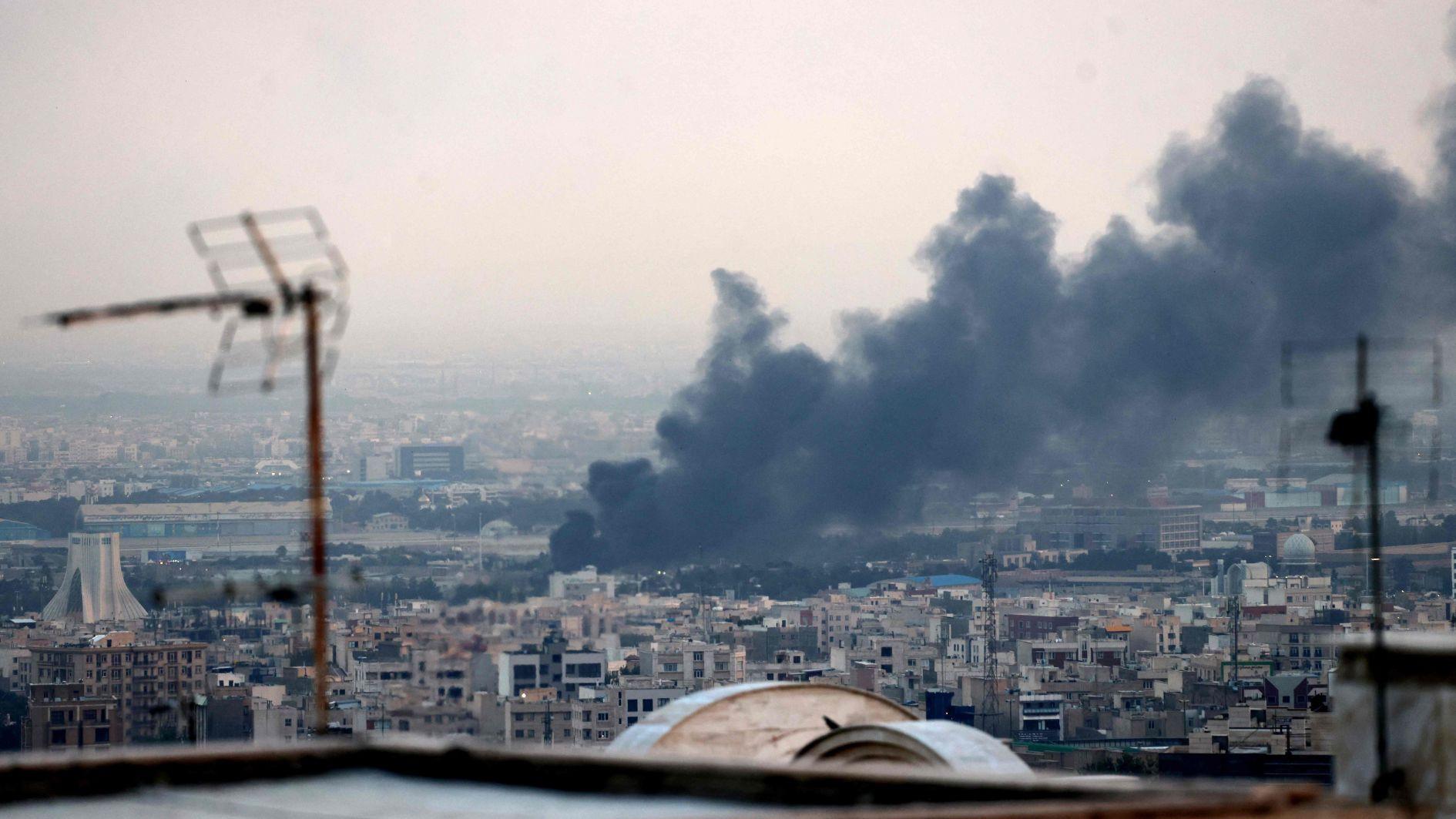
As the Iran-Israel conflict marked its fifth day on June 17, both Iranians and Israelis remain caught between mixed signals about a possible ceasefire and growing fears that the war could drag on and spread beyond major cities to engulf broader national territories — even as many still cling to hopes for a negotiated resolution.
On June 17, Israel struck several military targets inside Iran, including the killing of a newly-appointed senior Iranian commander, prompting Tehran to retaliate with missile barrages. Despite increasing international calls to deescalate, both sides have continued their relentless exchange of missile attacks, which began with Israel’s unprecedented aerial assault on Iranian nuclear and military infrastructure on June 13.
While American and Israeli media reported multiple efforts toward ceasefire negotiations, these have done little to calm fears. On the contrary, remarks by U.S. President Donald Trump and Israeli Prime Minister Benjamin Netanyahu — urging civilians to evacuate Tehran —fueled panic across Iran.
Although the conflict is barely a week old, the scale and intensity of destruction, combined with civilian casualties and nightly bombardments, convinced many Iranians and Israelis alike that the confrontation could persist for weeks, if not months.
Iranian media downplays threats amid security lack
Several Iranians noted they remain largely uninformed about the true scale of the Israeli strikes, citing state media coverage that minimizes the extent of damage and avoids broadcasting urgent safety information.
Despite five days of intermittent airstrikes, residents report receiving no official guidance on how to protect themselves or where to seek shelter.
In the absence of reliable communication from the authorities, Iranians turned to social media. Some have formed online groups to exchange warnings and updates on incoming attacks, while others use platforms like Instagram to share images of damaged homes and offer reassurance to loved ones that they’ve evacuated.
“We have nothing — not even a government that would bother giving safety suggestions to people,” said Alireza, a Tehran resident who fled the capital for the northern province of Gilan in an interview with the Washington Post.
Even as state TV aired footage of children singing patriotic songs and Iranian missiles striking Israeli targets, an Israeli strike hit the network's studio mid-broadcast.
Government spokeswoman Fatemeh Mohajerani suggested residents take refuge in metro stations, mosques and schools — a recommendation widely questioned given that Israel has already targeted residential and civilian infrastructure.
Online, anxious Iranians have asked for tips on how to prepare for chemical exposure, what medications to stock and what to do if living near nuclear facilities. In at least one Telegram group, thousands of Tehran residents coordinated shared rides to leave the city.
On June 16, traffic jams choked roads leading north, as over 100,000 people reportedly fled Tehran for safer regions.
Cross-border movements have also begun. Some Iranians have crossed into neighboring Türkiye and Azerbaijan, with many checking into hotels in the eastern Turkish city of Van to wait out the violence. Azerbaijan, for its part, announced that over 600 foreign nationals fled Iran into its territory over the past five days.
Public fear in Iran is compounded by widespread anxiety over possible Israeli intelligence infiltration. A poster distributed by state-affiliated Nour News — close to Iran’s security apparatus — warned the public to be wary of individuals wearing “masks, hats and sunglasses, even at night,” or receiving “frequent courier deliveries.”
The government arrested dozens across the country on suspicion of spying, including 60 people in the central city of Isfahan, where Israel claims it struck a nuclear facility. Many detainees are accused of sharing pro-Israeli content online, which the authorities describe as undermining “the psychological security of society.”
This crackdown comes amid reports that Mossad agents managed to smuggle weapons into Iran and use them from within during Israel’s initial assault — a revelation that has rocked Iran’s security establishment.
Cyber attacks, new shelters
Compared to Iranians, Israelis remain better protected thanks to the country’s extensive network of air-raid shelters. On June 17, Israeli media reported plans to build even more fortified shelters in major cities.
Still, the psychological impact of the conflict is palpable. Iran’s strikes on Haifa and Tel Aviv in the opening salvo shattered the long-held Israeli perception of invulnerability, exposing vulnerabilities in the Iron Dome defense system.
Iran’s decision to launch nightly attacks — which force many Israelis to sleep in shelters — is viewed by some as a tactic of psychological warfare. The timing, they argue, ensures maximum fatigue and fear.
Adding to Israeli concerns are cyberattacks. On June 16, many Israelis received spoofed messages, allegedly from Iranian-linked hackers, warning of imminent terror attacks inside shelters and advising them to avoid public spaces until further notice.
Meanwhile, some Israelis worry that Netanyahu may have political incentives to prolong the war. Amid domestic and international criticism over his handling of the Gaza conflict and hostage negotiations, the Iran war offers him a rare rallying point.
Observers have noted a shift in Netanyahu’s rhetoric, from targeting Iran’s nuclear program to suggesting regime change and the potential assassination of Supreme Leader Ayatollah Ali Khamenei.
On June 17, Israeli Defense Minister Yoav Gallant warned, “I caution the Iranian dictator against continuing to commit war crimes and launching missiles at Israeli civilians,” adding that Khamenei could meet the same fate as Iraq’ executed leader Saddam Hussein.
Another source of concern is the flurry of foreign governments initiating plans to evacuate their citizens from Israel — a development that signals how volatile the situation has become.
Asymmetrical threat
According to Israeli media, Iran may also resort to asymmetrical warfare tactics, targeting Israeli diplomats, synagogues, or Jewish tourists abroad — strategies it has used in the past. However, the so-called “Axis of Resistance” has taken heavy losses in recent months.
Since the Oct. 7, 2023, Hamas attack, Israeli strikes have severely weakened Iranian-backed groups like Hezbollah and Hamas. While Iraq’s Iran-backed militias have yet to engage, Yemen’s Houthi rebels remain the only group to have launched attacks on Israel since the latest escalation began.